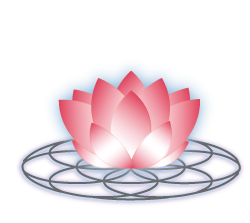In this article, I will be talking about 1 Pillar of Health - Activity, and what you can do to have this foundation. These foundations is an awesome start to work towards your health goals, but if you have other underlying conditions, this is the first step. To accelerate your health journey and make sure you are going in the right direction, book an appointment with someone you trust and can work with.
Stress
Stress affects everything in your body. It is difficult for your body to digest and absorb nutrients from your meals if you are stressed since your body is in sympathetic mode. Sympathetic mode is when you go into a "fight, flight, (and more recently) or freeze" state. When you are in this state, your body prioritizes these actions by pumping blood to the heart and muscles so that you can fight or run, but at the same time, it decreases the flow of blood to your intestine and stomach. As a result, your digestive system is suppressed, and you don't digest your food or absorb the nutrients, which can cascade to different effects, such as being tired. Your body doesn't differentiate between life threatening stress and having-to-meet-a-deadline stress, your body reacts the same regardless.
To heal, you need to switch your mode from sympathetic, to parasympathetic. Parasympathetic is the "rest, digest, and repair" mode, where your body can nourish itself and heal. This is the mode you want to be in when you are eating and sleeping, that way your body can do these functions optimally; otherwise, you will not be able to recover and nourish your body fully. An easy way to do this is by using breathing techniques. The one I generally recommend is the Square breathing technique, where you breath in for 4 seconds, then hold it for 4 seconds, exhale for 4 seconds, and then hold again for 4 seconds, before continuing this kind of breathing for a few cycles (try 5-10 cycles, you can do more if you want to). Doing this puts you into the parasympathetic mode, and is also a great way to help with anxiety.
One of the best ways to help relieve and manage stress is by physically active. Being active gives you a great outlet to let out your emotions, and allows you to express it. If you're really frustrated or angry, doing contact sports can be helpful since you get to hit a punching bag and let it go. If you feel really emotional, dancing is a beautiful way to express that feeling, and to let it go. This way to help relieve stress is related to the Activity part of the Foundations of Health, and as you may have gleaned, stress related to all parts of the foundation.
Another way to help manage your stress is by journalling, this way you are able to reduce the stress from your mind. You are able to express yourself in words - unfiltered. Express how you are really feeling and not have to censor yourself from saying certain things. This can be very liberating, especially if you find that you have to censor or filter yourself the entire day. This lets you be you, all of you, without fear of judgement.
Lastly, there are herb that you can use to help your mind and body cope with stress better. These herbs are said to be adaptogens in the botanical world, and though they will all generally help you with stress, some of them are better than others - especially depending on your constitution and how you are currently doing with the stress. Some herbs are good for long time use, while others are better for short term use. The herbs for short term use tend to use your nutritional and energy stores to help you get through the stressful situation - which can be good, if you have those stores. The ones for long term use tend to be also very nutritive for the body, which is why you can use them for long term. It is best to talk to a health provider with herbal knowledge to determine which is the best one for you.
Happy breathing!
~Dr. Charmagne


